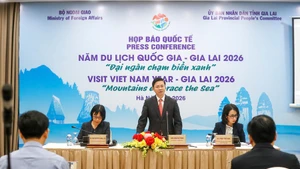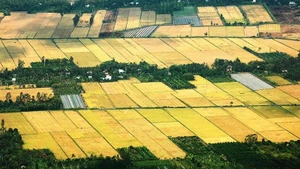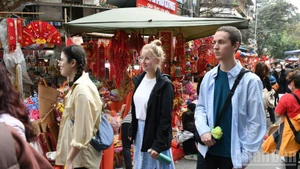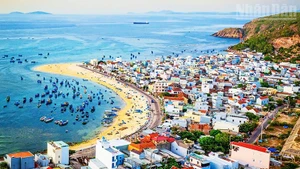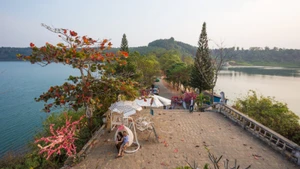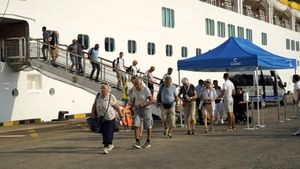While digital transformation can be understood as the integration and application of digital technologies to enhance management and business efficiency, green transformation refers to efforts aimed at achieving sustainable development with responsibility towards the environment and society.
Viet Nam’s Tourism Development Strategy to 2030 emphasises the need to “develop sustainable and inclusive tourism based on green growth”, while also stressing the importance of “professional, high-quality and efficient tourism development, coupled with the application of achievements from the Fourth Industrial Revolution.” The Prime Minister’s Directive No. 34/CD-TTg on promoting tourism to ensure double-digit economic growth also underscores the urgency of accelerating digital and green transformation in the tourism sector.
Recently, both the 12th General Assembly of the Tourism Promotion Organisation for Asia Pacific Cities (TPO 2025) and the High-level Tourism Forum, held within the framework of the Ho Chi Minh City International Travel Expo (ITE HCMC 2025), adopted the theme: “Shaping the Future of Tourism: Towards Digital and Green Transformation.”
According to Deputy Prime Minister Mai Van Chinh, in the era of digitalisation and sustainable development, it is vital to recognise that digital and green transformation are not two separate paths but rather “golden keys”, two “strategic pillars” that go hand in hand, complementing each other to create a synergistic force for a sustainable, modern, humane and culturally distinctive tourism industry.
Minister of Culture, Sports and Tourism Nguyen Van Hung shared the same view, affirming that digital and green transformation in tourism is an inevitable strategic course of action for every nation, including Viet Nam.
In recent years, many localities, destinations and tourism enterprises in Viet Nam have proactively applied digital and green technologies in tourism operations and business, fostering the development of smart tourism and creating new, environmentally friendly models and products. Campaigns to reduce plastic waste in tourism activities, support enterprises in applying digital technologies for management, operations and marketing, have been implemented on a large scale. Increasing numbers of green tours, smart hotels and sustainability-certified businesses and destinations have emerged.
However, experts note that for Viet Nam’s tourism industry to advance further in digital and green transformation, it must overcome multiple challenges with comprehensive and synchronised solutions. Phung Quang Thang, Chairman of the Viet Nam Green Tourism Association, observed that both digital and green transformation require significant initial investment in technology and infrastructure. As this is an irreversible trend, it demands collective engagement from all stakeholders, with the State playing a guiding role, enterprises serving as pioneers, and local communities actively participating.
Alongside tax and financial incentives, it is crucial to encourage broad participation from businesses to generate strong demand for green transformation. This would, in turn, stimulate the green materials market, lower production costs and reduce investment burdens. Thang also stressed that green transformation should go beyond environmental protection to encompass the preservation and promotion of cultural values and the delivery of tangible benefits to local communities.
Highlighting that this is an irreversible global trend, Pham Van Thuy, Deputy Director General of the Viet Nam National Authority of Tourism, revealed that a shared digital platform for the tourism industry is being developed. This platform will enable businesses to access digital data for tourism marketing and promotion, while also allowing visitors to easily find information about Vietnamese destinations.
Regarding green transformation, Thuy noted that Viet Nam possesses abundant resources for green tourism and should focus on developing more green tourism products that align with market demand to attract visitors.
At the High-level Tourism Forum themed “Shaping the Future of Tourism: Towards Digital and Green Transformation,” Deputy Prime Minister Mai Van Chinh stressed the need to strongly shift the growth model, using digital transformation as the driving force to improve service quality, visitor experience and management efficiency, and green transformation as the foundation to build a tourism sector that is in harmony with nature and responsible to both communities and the environment.
The Deputy Prime Minister also outlined several key directions: continuing to refine institutions and renew thinking about tourism development, shifting from a “growth-at-all-costs” mindset to one focused on “sustainable development”; enhancing action and expanding international cooperation in digital and green transformation; studying and establishing a set of principles for digital and green tourism to encourage adoption by countries and enterprises; strengthening regional and sectoral linkages to create distinctive, in-depth and highly competitive tourism products; making substantial investments in human resources development; and introducing appropriate mechanisms and policies to encourage businesses to invest in effective tourism models, with priority given to digital and green tourism initiatives.

